9 start with M start with M
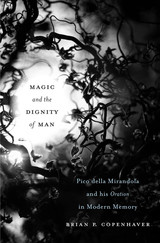
“This book is nothing less than the definitive study of a text long considered central to understanding the Renaissance and its place in Western culture.”
—James Hankins, Harvard University
Pico della Mirandola died in 1494 at the age of thirty-one. During his brief and extraordinary life, he invented Christian Kabbalah in a book that was banned by the Catholic Church after he offered to debate his ideas on religion and philosophy with anyone who challenged him. Today he is best known for a short speech, the Oration on the Dignity of Man, written in 1486 but never delivered. Sometimes called a “Manifesto of the Renaissance,” this text has been regarded as the foundation of humanism and a triumph of secular rationality over medieval mysticism.
Brian Copenhaver upends our understanding of Pico’s masterwork by re-examining this key document of modernity. An eminent historian of philosophy, Copenhaver shows that the Oration is not about human dignity. In fact, Pico never wrote an Oration on the Dignity of Man and never heard of that title. Instead he promoted ascetic mysticism, insisting that Christians need help from Jews to find the path to heaven—a journey whose final stages are magic and Kabbalah. Through a rigorous philological reading of this much-studied text, Copenhaver transforms the history of the idea of dignity and reveals how Pico came to be misunderstood over the course of five centuries. Magic and the Dignity of Man is a seismic shift in the study of one of the most remarkable thinkers of the Renaissance.
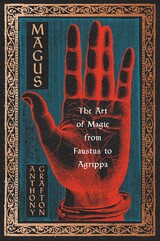
A revelatory new account of the magus—the learned magician—and his place in the intellectual, social, and cultural world of Renaissance Europe.
In literary legend, Faustus is the quintessential occult personality of early modern Europe. The historical Faustus, however, was something quite different: a magus—a learned magician fully embedded in the scholarly currents and public life of the Renaissance. And he was hardly the only one. Anthony Grafton argues that the magus in sixteenth-century Europe was a distinctive intellectual type, both different from and indebted to medieval counterparts as well as contemporaries like the engineer, the artist, the Christian humanist, and the religious reformer. Alongside these better-known figures, the magus had a transformative impact on his social world.
Magus details the arts and experiences of learned magicians including Marsilio Ficino, Pico della Mirandola, Johannes Trithemius, and Heinrich Cornelius Agrippa. Grafton explores their methods, the knowledge they produced, the services they provided, and the overlapping political and social milieus to which they aspired—often, the circles of kings and princes. During the late fifteenth and early sixteenth centuries, these erudite men anchored debates about licit and illicit magic, the divine and the diabolical, and the nature of “good” and “bad” magicians. Over time, they turned magic into a complex art, which drew on contemporary engineering as well as classical astrology, probed the limits of what was acceptable in a changing society, and promised new ways to explore the self and exploit the cosmos.
Resituating the magus in the social, cultural, and intellectual order of Renaissance Europe, Grafton sheds new light on both the recesses of the learned magician’s mind and the many worlds he inhabited.
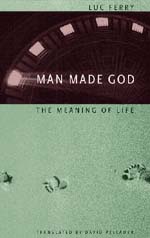
Luc Ferry argues that modernity and the emergence of secular humanism in Europe since the eighteenth century have not killed the search for meaning and the sacred, or even the idea of God, but rather have transformed both through a dual process: the humanization of the divine and the divinization of the human. Ferry sees evidence for the first of these in the Catholic Church's attempts to counter the growing rejection of dogmatism and to translate the religious tradition into contemporary language. The second he traces to the birth of modern love and humanitarianism, both of which demand a concern for others and even self-sacrifice in defense of values that transcend life itself. Ferry concludes with a powerful statement in favor of what he calls "transcendental humanism"—a concept that for the first time in human history gives us access to a genuine spirituality rooted in human beings instead of the divine.

“Seymon Lyudvigovich Frank, the author of the volume here made available for the first time in English translation, was one of the leading Russian philosophers of this century; some authorities consider him the most outstanding Russian philosopher of any age….
”Man’s Soul is a book which perfectly exemplifies the generous conception of the mission and competence of philosophy characteristic of Frank and the other members of the Russian metaphysical movement. Frank’s stated aim in the treatise is to reclaim for philosophy a field of investigation which, from the time of Plato and Aristotle to that of the Russian Idealists, philosophers had viewed as properly theirs, but which, since the mid-nineteenth century, they had allowed to fall into almost complete neglect: the study of the nature of the human soul (or psyche)….
“The moral message of Man’s Soul is well summed up by its epigraph, quoted from St. Augustine: ‘Let man first of all return to his own self, so that once he has, as it were, stepped therein, he may rise from thence and be elevated to God.’”
—from the foreword by Philip J. Swoboda

An Open Letters Review Best Book of the Year
Angelo Poliziano (1454–1494) was one of the great scholar-poets of the Italian Renaissance and the leading literary figure of Florence in the age of Lorenzo de’ Medici, “il Magnifico.” The poet’s Miscellanies, including a “first century” published in 1489 and a “second century” unfinished at his death, constitute the most innovative contribution to classical philology of the Renaissance. Each chapter is a mini-essay on some lexical or textual problem which Poliziano, drawing on the riches of the Medici Library and Lorenzo’s collection of antiquities, solves with his characteristic mixture of deep learning, analytic skill, and brash criticism of his predecessors. Volume 1 presents a new Latin edition of The First Century of the Miscellanies, and these volumes together present the first translation of both collections into any modern language.

An Open Letters Review Best Book of the Year
Angelo Poliziano (1454–1494) was one of the great scholar-poets of the Italian Renaissance and the leading literary figure of Florence in the age of Lorenzo de’ Medici, “il Magnifico.” The poet’s Miscellanies, including a “first century” published in 1489 and a “second century” unfinished at his death, constitute the most innovative contribution to classical philology of the Renaissance. Each chapter is a mini-essay on some lexical or textual problem which Poliziano, drawing on the riches of the Medici Library and Lorenzo’s collection of antiquities, solves with his characteristic mixture of deep learning, analytic skill, and brash criticism of his predecessors. Volume 1 presents a new Latin edition of The First Century of the Miscellanies, and these volumes together present the first translation of both collections into any modern language.
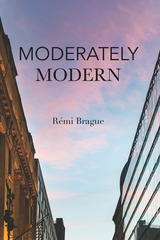

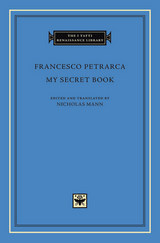
READERS
Browse our collection.
PUBLISHERS
See BiblioVault's publisher services.
STUDENT SERVICES
Files for college accessibility offices.
UChicago Accessibility Resources
home | accessibility | search | about | contact us
BiblioVault ® 2001 - 2024
The University of Chicago Press









